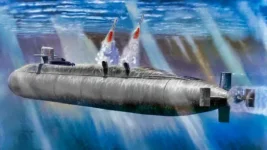- Views: 2K
- Replies: 18
The Indian Navy's Project-75I submarine tender, aimed at acquiring six advanced diesel-electric submarines with Air Independent Propulsion (AIP) systems, has reached a critical juncture.
While anticipation builds around the announcement of the winner between Germany's ThyssenKrupp Marine Systems (TKMS) and Spain's Navantia, the program faces potential legal hurdles due to non-compliance with the AIP system standards specified in the Request for Proposal (RFP).
Both contenders, TKMS with its U-214NG submarine and Navantia with its S-80 class, have showcased their AIP systems, but in ways that raise questions about adherence to the Navy's stringent technical requirements.
TKMS has demonstrated a well-established AIP system, but only on their smaller 2000-ton submarines. The U-214NG, proposed for India, is a larger 3000-ton class, requiring an upscaled AIP system that has not yet been validated for this size. While the technology itself is proven, its application to the larger model necessitates further scaling and testing.
Navantia, on the other hand, has only showcased its AIP system via a land-based prototype. The actual integration into a submarine, specifically the third of the S-80 class for the Spanish Navy, is not expected to be demonstrated until 2026. This delay in providing a sea-proven AIP system directly on a submarine falls short of the immediate operational readiness criteria set by the RFP.
The Indian Navy appears to be leaning towards TKMS due to their operational AIP technology, albeit on a smaller scale. However, Navantia is pushing for a decision based on cost considerations, arguing that neither company has fully met the RFP's AIP technical demands.
Defence analysts have highlighted potential legal complications. "If the contract is awarded to one, there's a high likelihood of the other party challenging the decision in court," they stated, pointing out that both companies could claim unfair treatment since neither has met the exact specifications.
This could lead to a protracted legal dispute, significantly delaying Project-75I and potentially forcing the Navy to either re-issue the tender or provide compelling technical justification for their choice to withstand legal scrutiny.
This situation underscores the complexities of high-stakes defence procurement, where technical compliance, national security needs, and legal implications are intertwined. The Indian Navy and the Ministry of Defence now face a difficult decision, needing to navigate these challenges while ensuring the strategic submarine capabilities of the nation are not compromised by legal or technical disputes.

